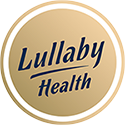Alternative medicine is still relatively new in Australia meaning that you (and your doctor) may have questions about it.
Lullaby Health’s doctors are highly experienced prescribers of alternative medicine. Here, we answer some of the most common questions we’re asked about it.
Is it legal?
Yes. In 2016, Australia legalised the use of alternative medicine on prescription.Can any doctor prescribe alternative medicine?
Yes…but it’s a little more complicated than prescribing other medications. Only a couple of alternative medicine drugs are included in Australia’s register of therapeutic goods. That means most alternative medicine is currently classed as an ‘unapproved therapeutic good’ and doctors need special permission to prescribe it. They can do this in two ways:- Applying to the Special Access Scheme for each patient they treat
- Becoming an Authorised Prescriber, meaning they have received permission to treat patients as they see fit and don’t need permission for each individual patient (Lullaby Health doctors are authorised prescribers).
Can’t I just buy some online?
We understand the temptation but no. Firstly, self-diagnosis is problematic. Your doctor is trained to assess your condition, consider all the available treatments and recommend a way forward that meets your needs and your broader situation (such as your job requirements). In rushing to diagnose yourself and obtain the treatment you think best, you may easily miss something. Secondly, as you’ll be ordering from overseas, your package must go through customs – who are authorised to seize it as it can only be imported by licensed doctors, not consumers. You’ll probably just lose the money you’ve paid.How is it different from street versions?
In so many ways. All medicines – including alternative medicine – are highly regulated and subject to strict quality controls. That’s vital to ensure consistency and stability so that each dose is the same. None of those safeguards exists for street versions. They may be contaminated by pesticides, fertilisers or heavy metals found in soil and they may vary considerably in their strength, which may cause more intense effects than you anticipated.What might alternative medicine help with?
Alternative medicine aims to complement the mainstream care you’re receiving for your health needs. Mainstream treatment tends to have a stronger evidence base and a longer history of clinical use, giving us greater confidence in its effectiveness. However, some patients may find that they’re still battling troublesome symptoms or that the mainstream treatment itself causes unpleasant side effects. This is where alternative medicine may play a role. It may help to alleviate some of the symptoms that still trouble you, such as sleep difficulties or nausea.How does alternative medicine work?
Alternative medicine interacts with a vast network of chemical signals and cellular receptors densely packed throughout your brain and body. This network helps to regulate many important aspects of your life, such as your appetite, temperature or alertness, for example. The active ingredients in alternative medicine bind to some of those receptors, influencing aspects such as pain or sleep.How do you take alternative medicine?
While street versions are usually smoked, legal alternative medicine is often taken by mouth in the form of oils, pills or dried flower products.What’s the difference between CBD and THC?
CBD and THC are the two most common active ingredients in alternative medicine. THC is the chemical that gets people high. CBD does not cause intoxication.How pricey is it?
The vast majority of alternative medicine products have not been approved by the Therapeutic Goods Administration and so are not covered by the Pharmaceutical Benefits Scheme (PBS). If you have private health insurance, your fund may cover your treatment but may set an annual limit or a maximum rebate per prescription. So, yes, you’re likely to have some out-of–pocket costs for your treatment. At Lullaby Health, we explain your likely costs before you decide to proceed with treatments so that you can make an informed financial decision.Are there any side effects?
All medicines have side effects that some patients may experience. Common side effects of alternative medicine include:- Fatigue
- Vertigo
- Nausea
- Fever
- Changes to appetite
- Dry mouth
- Diarrhoea.
- Convulsions
- Highs and lows
- Depression
- Confusion
- Hallucinations or delusions
- Psychosis
- Thinking things that aren’t true (cognitive distortions).
What about driving?
The Alcohol and Drug Foundation states that, if your medicine contains only CBD, you can legally drive – as long as your ability to drive is not affected. That introduces a grey area so it’s important to be aware of the laws in your state. It is illegal to drive with any amount of THC in your system. THC is intoxicating. It can impair your driving ability and create a sense of being high. In fact, even if you don’t feel high (CBD can moderate that), you can still be impaired. Be aware that THC can stay in your system for a long time. THC can be detected in your saliva for 6 hours-3 days after use and in your blood or urine for up to a month.How can Lullaby Health help?
At Lullaby Health, we aim to help you find a solution for the difficulties you face. Unlike many other clinics, we offer a high level of ongoing support as you adjust to alternative medicine. With us, you have access to experienced doctors who can help you understand how alternative medicine works and how it may help you. Our goal is not simply to dash off a prescription but to help you find a way through the difficulties you’re facing. Please contact us to find out more. Disclaimer Lullaby Health is not promoting the use of medical cannabis. Medical cannabis does affect every person differently, due to factors such as size, weight, health, dosage, tolerance, and age. Medical cannabis might not work for you, and you might experience side effects. Information provided by Lullaby Health is for educational and informational purposes only. For medical advice, please refer to your doctor. Medical cannabis in Australia is regulated by the Therapeutic Goods Administration and details about cannabis as a scheduled drug can be found on their website.References
- https://www.tga.gov.au/products/unapproved-therapeutic-goods/prescribe-unapproved-therapeutic-good-health-practitioners/unapproved-products-individual-patients-special-access-scheme, [Accessed 21 November 2023]
- https://www.tga.gov.au/products/unapproved-therapeutic-goods/prescribe-unapproved-therapeutic-good-health-practitioners/unapproved-products-multiple-patients-authorised-prescriber, [Accessed 21 November 2023]
- https://www.tga.gov.au/products/unapproved-therapeutic-goods/prescribe-unapproved-therapeutic-good-health-practitioners/unapproved-products-multiple-patients-authorised-prescriber, [Accessed 21 November 2023]
- https://www.healthdirect.gov.au/medicinal-cannabis, [Accessed 21 November 2023]
- https://www.tga.gov.au/resources/resource/guidance/guidance-use-medicinal-cannabis-australia-patient-information#, [Accessed 21 November 2023]
- https://adf.org.au/insights/medicinal-cannabis-driving/, [Accessed 21 November 2023]
- https://www1.racgp.org.au/ajgp/2021/june/medical-cannabis-and-driving, [Accessed 21 November 2023]






